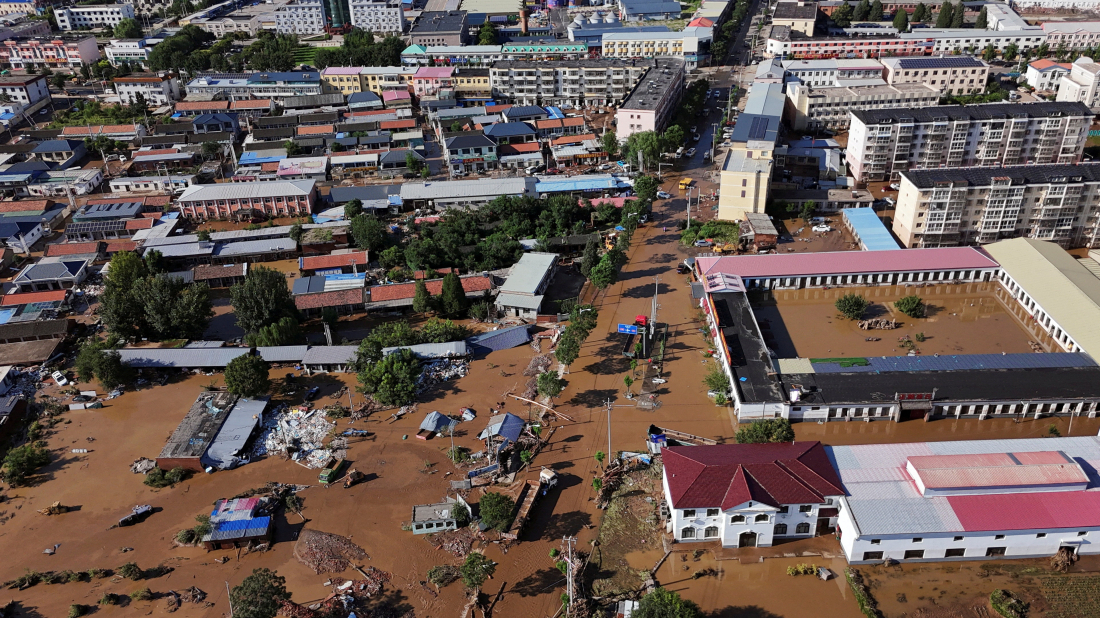On the ground in Tehran as explosions rocked the Iranian capital
As the strikes on Tehran began on Saturday (28 February), Touraj Shiralilou sent us this report from the Iranian capital....

Beijing had evacuated over 70,000 residents by Monday afternoon as authorities issued fresh warnings of intense rainfall, just a week after deadly floods left dozens dead in the city’s worst deluge since 2012.
Forecasters predicted up to 200mm (7.9 inches) of rain could fall in parts of the capital within six hours, an alarming figure for a city that typically sees about 600mm annually. The alert came as emergency teams rushed to strengthen flood barriers, improve forecasting systems, and refine evacuation procedures, following harrowing scenes of people being swept away in floodwaters, including three fatalities reported at a wellness camp in Hebei province.
From 23 to 29 July, at least 44 people died in Beijing, many caught off guard by sudden floods, particularly at a nursing home in the northeastern Miyun district. The incident prompted officials to acknowledge significant flaws in their emergency planning.
As of noon Monday, all 16 districts of Beijing had been placed on the highest state of emergency readiness- the first such declaration since 28 July. Authorities shut down sections of the Great Wall and other outdoor attractions, while also suspending operations of underground businesses due to the “extremely high” risk of flash floods and landslides.
By 2 p.m., nearly 14,000 of those evacuated were from the mountainous Mentougou district in western Beijing, according to state media.
In 2012, the city’s worst recorded flooding killed 79 people, especially affecting Fangshan district. Beijing’s geography, surrounded by mountains to the west and north, creates a natural “trap” for rain-bearing clouds, often intensifying rainfall levels.
Tragedy at wellness retreat
In Hebei province, just outside Beijing, torrential rains struck the 'Beijing Valley' wellness retreat in Chengde on 27 July, killing three people and leaving four unaccounted for, according to Xinhua. Around 40 people had gathered for an event on the site, reportedly camping on low-lying terrain near a river bend. By 2 a.m. the following day, floodwaters reached knee height, forcing a chaotic escape through the site’s only exit.
The disaster bore eerie resemblance to the recent tragedy at Camp Mystic in Texas, where 28 children died after flash floods overwhelmed a riverside camp.
Meanwhile, in China’s southern Guangdong province, five bodies were recovered over the weekend following a large-scale search involving more than 1,300 rescuers. The victims had gone missing Friday night during flash floods triggered by days of heavy rain, Xinhua reported.
Tensions between the U.S. and Iran are escalating, with Washington ordering a significant military build-up in the region and multiple countries evacuating diplomatic staff amid fears of further instability.
Israel has launched a pre-emptive missile strike against Iran, the Defence Minister said on Saturday, as the military sounded air raid sirens to prepare the public for possible retaliation.
The situation in Cuba was heating up and called for restraint following a deadly incident involving a Florida-registered speedboat off the coast of the Caribbean island, the Kremlin said on Thursday (26 February).
Russian President Vladimir Putin’s special envoy, Kirill Dmitriev, arrived in Geneva and may hold talks with U.S. officials, according to the RIA news agency.
Ankara has rejected media reports claiming it plans to deploy military forces into Iranian territory in the event of a U.S. attack on the Islamic republic.
The death toll from heavy rains and flooding in Brazil’s Minas Gerais state has risen to 46, authorities said, with 21 people still reported missing. The storms triggered landslides and widespread flooding, displacing thousands across Juiz de Fora and Uba.
The administration of U.S. President Donald Trump on Thursday (12 February) announced the repeal of a scientific finding that greenhouse gas emissions endanger human health, and eliminated federal tailpipe emissions standards for cars and trucks.
Tropical Cyclone Gezani has killed at least 31 people and left four others missing after tearing through eastern Madagascar, the government said on Wednesday, with the island nation’s second-largest city bearing the brunt of the destruction.
Rivers and reservoirs across Spain and Portugal were on the verge of overflowing on Wednesday as a new weather front pounded the Iberian peninsula, compounding damage from last week's Storm Kristin.
Morocco has evacuated more than 100,000 people from four provinces after heavy rainfall triggered flash floods across several northern regions, the Interior Ministry said on Wednesday.
You can download the AnewZ application from Play Store and the App Store.

What is your opinion on this topic?
Leave the first comment